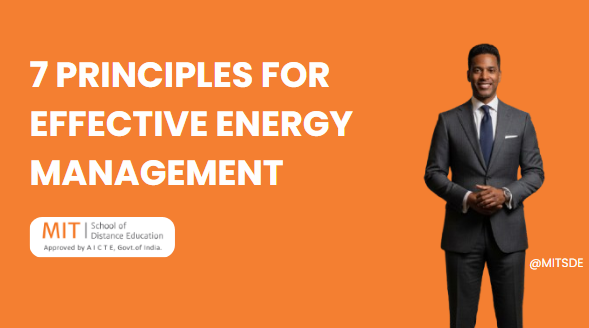
What types of organisations benefit the most from energy management practices?
Practically all businesses benefit, but manufacturing companies, hotels, hospitals and IT firms gain the most from energy management. These sectors have high energy consumption; so effective energy management cuts costs, boosts efficiency, supports sustainability and strengthens their reputation.
With the passage of time, the cost of energy has shot up to a great extent. This change has resulted in making energy management a priority for all the facility managers and commercial building owners.
Nowadays, a number of cutting-edge technologies are being exploited in the field including the latest automated management systems. These technologies when used in conjunction with certain principles of energy management exhibit potentials to create a successful energy program which is quite efficient. The basic principles of energy management so employed are as follows:
- Identification and tracking of Energy Pattern: The first step of any program is identifying and tracking the energy pattern of that program. If we do not have the knowledge of when and where the energy is used, then there is no way to estimate the relative importance of any Energy Management Project.
- Controlled energy system’s use: To obtain more amount of energy saving, it is not important to install more and more efficient components like electronic ballasts or T-8 lamps, etc. Instead, what is more important is that we must keep a check on the system’s use and ensure that the resources are aptly used.
- Properly maintained and managed facilities: A program with effectively maintained and managed facilities is the only program that offers effectual Energy Management. The quantity of technological equipment has nothing to do with the success of energy management program.
- Good Maintenance practices: To attain the highest rates of return on Energy Conservation, it is important to keep in mind the maintenance practices in the program. We know that Great Maintenance and Successful Energy Management go hand in hand, so simply by performing maintenance, we can achieve success in any energy management programs.
- Preventive and Reactive Maintenance: Despite the funding limitations, we know that waiting for any crisis to take place is a waste of time, i.e., reactive maintenance is imprudence. On the contrary, preventive maintenance is critical for the program’s success. It can be ignored when systems are new, heat exchange systems are clean, seals are tight and calibrations are precise. However, as the system ages, these items need care or preventive maintenance.
- Distinction between Maintenance and energy Management: One should know the clear distinction between Maintenance and Energy Management. Cleaning and fixing of equipment for better use come under good maintenance while installation of more efficient equipment comes under good energy management. Both of these serve different purposes. It is very important to remember their difference whenever a budget is being prepared for any program.
- Automated Energy Management Systems: Even the most overrated technologies of automated energy management systems cannot recompense for a poor HVAC system design. No automation can bring more performance out of any system components if heating and cooling of loads is incorrectly calculated or if the set of equipment is inappropriate.
Thus, to create an effective energy management program, it is imperative to keep these basic principles of energy management in mind. Furthermore, the global scenario is changing at a rapid phase. Hence, it demands for innovative as well as effective energy management solutions every single day. So, organisations are hiring professionals to take care of this. These professionals have in-depth knowledge of the technicalities, economics, legal requirements and entrepreneurial concepts of the energy sector and so they are paid well.
If you wish to shape your career in the field of energy management, then you should pursue Management-equivalent Post Graduate Diploma in Management (PGDM) course in Energy Management offered by MIT School of Distance Education (MIT-SDE). This course imparts fundamental and thorough knowledge of the field so that the candidates are immediately absorbed in the industry.


